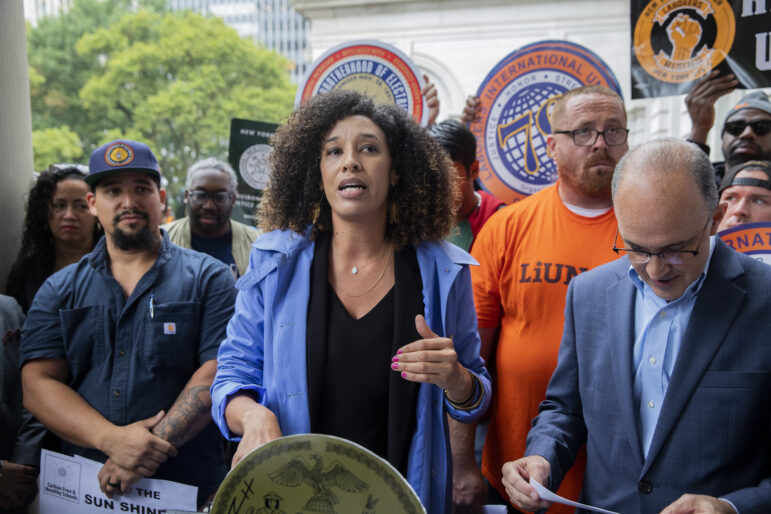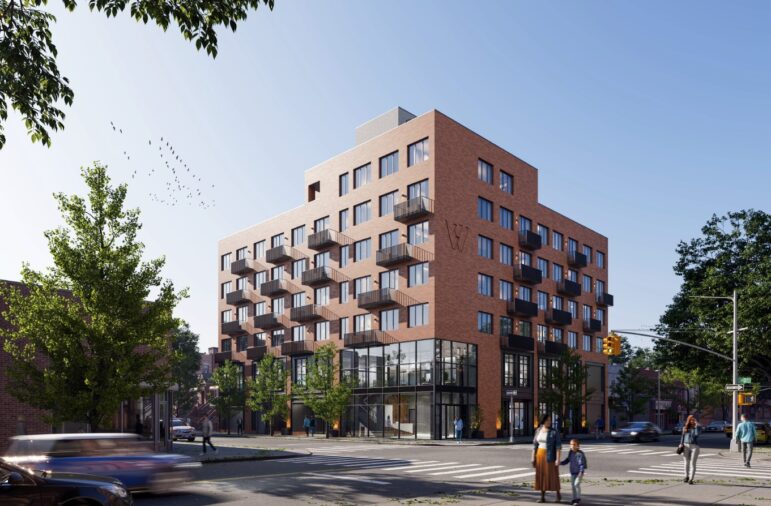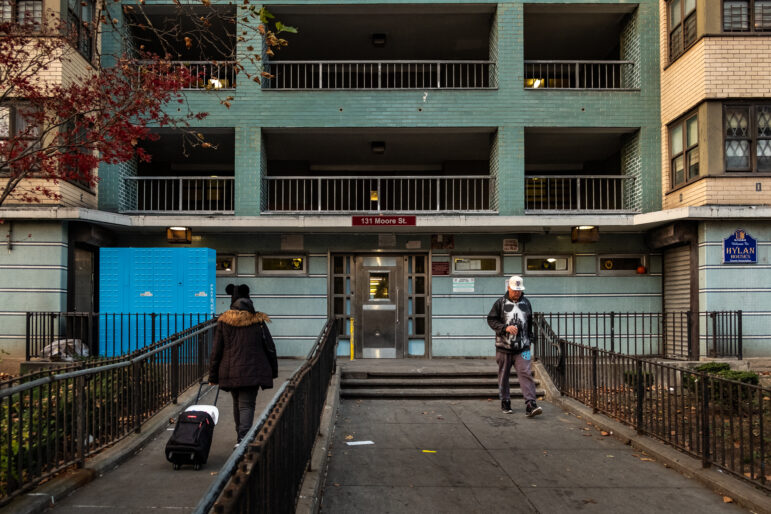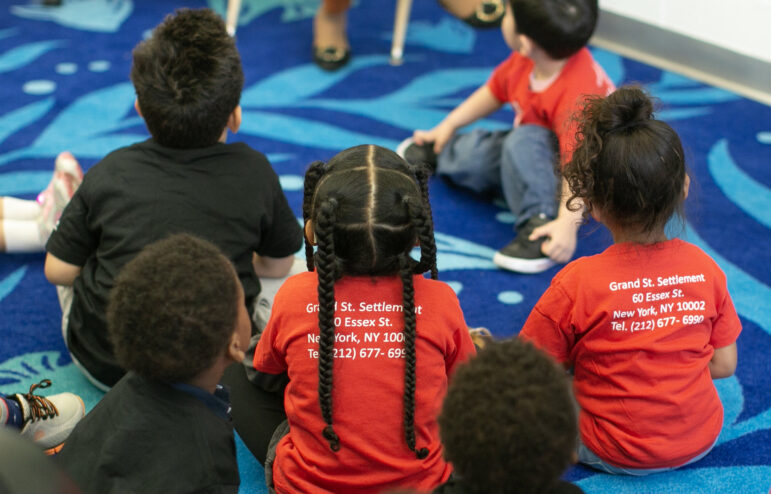“Veterans dealing with homelessness often struggle to connect with the specialized care they need. This creates a devastating cycle: untreated mental health issues make it harder to maintain housing, while housing instability makes it difficult to access mental health treatment.”
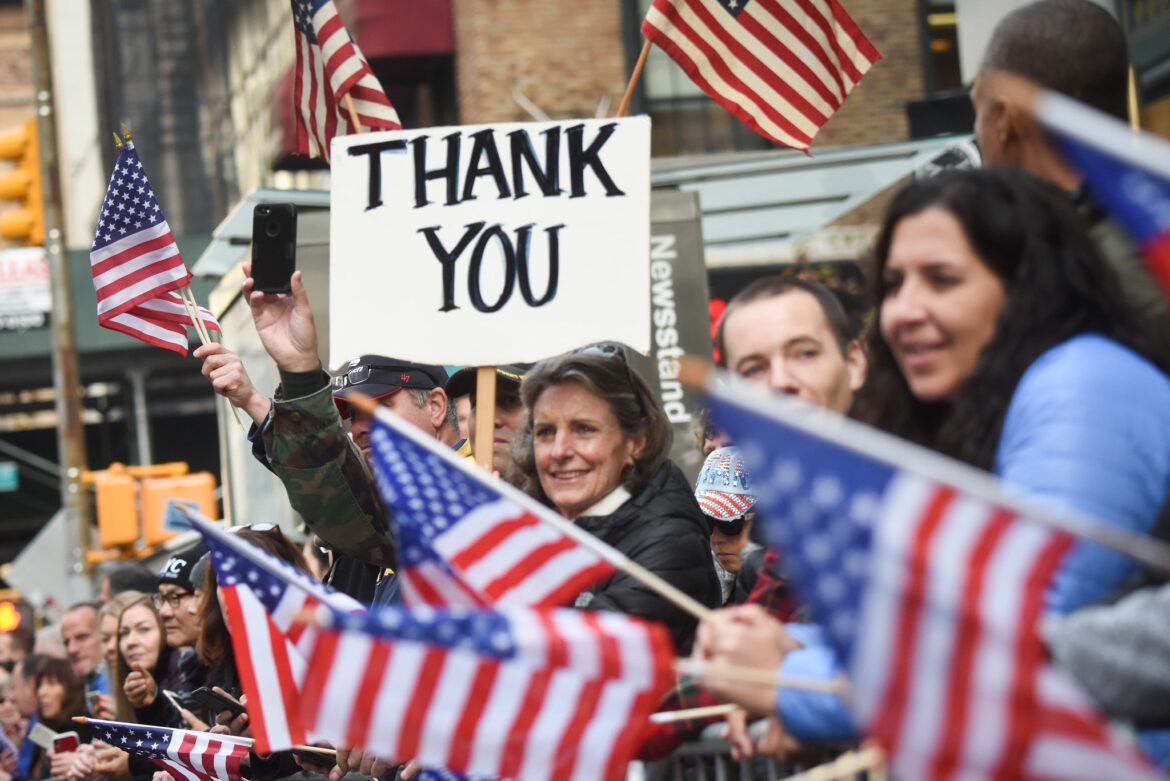
Michael Appleton/Mayoral Photography Office
The New York City Veterans Day Parade on Monday, November 4, 2019.Our veterans didn’t hesitate when called to serve—and we shouldn’t hesitate to serve them now.
In New York, we’ve made important progress towards addressing homelessness among veterans. Since 2011, the city has reduced veteran homelessness by nearly 90 percent. But those who remain unhoused face some of the most intractable challenges, which often include complex mental health diagnoses and bureaucratic barriers to care.
Veterans’ needs can be significant and interconnected. At Project Renewal, we’ve observed that nearly half of our veteran participants require multiple services simultaneously, including housing and mental health care. Many struggle with severe psychiatric conditions exacerbated by substance use and medical issues, such as head injuries sustained in combat. An aging veteran population—over half of veterans in New York are 65 or older—brings new complications like dementia into the mix.
Consider “Michael,” an older veteran diagnosed with Alzheimer’s, PTSD, and seizures. He was living in a shelter, where his condition deteriorated because of challenges managing his medications. My team worked hard to get him into a more appropriate nursing home setting, but it took hours of coordination between many providers. If our health systems shared electronic records, Michael—and many like him—wouldn’t have to endure such delays. Centralizing medical records would help streamline care and allow veterans, who often have long histories with various providers, to access appropriate treatment faster.
Michael’s experience is not unique. Veterans dealing with homelessness often struggle to connect with the specialized care they need. This creates a devastating cycle: untreated mental health issues make it harder to maintain housing, while housing instability makes it difficult to access mental health treatment. We must expand resources for higher-level support and to bridge the gaps between community providers, hospitals, and state programs, ensuring veterans can access a continuum of care.
One of the bureaucratic challenges veterans face is in the form of paperwork. For a veteran who is experiencing homelessness to access the benefits to which they are entitled, they must first prove their veteran status. This requires documentation that may have been lost during periods of instability. If someone has been living on the street or in a shelter, it is common for personal items like identification to be lost or stolen. They must coordinate between various federal, state, and city veteran services departments to obtain identification and records of their service. Each step presents an opportunity for the system to fail them, and too often, it does.
Outdated regulations further complicate care delivery. New York requires new nurse practitioners to complete 3,600 hours under a collaborating physician before practicing independently. Although I have nearly a decade of community mental health experience as a psychiatric nurse practitioner, I am not authorized to supervise new practitioners in our department. This barrier limits our ability to expand quality mental health care for veterans. Updating these regulations would address staffing issues and enable experienced providers like myself to serve more veterans without needless red tape.
To better support veterans experiencing homelessness, we need improved coordination between community providers and hospitals, more resources for intensive levels of care, and updated regulations that allow qualified professionals to practice to the full extent of their training.
But most importantly, we need to recognize that the mental health and housing needs of veterans demand immediate action. Every day we delay implementing solutions, more veterans cycle through emergency rooms and shelters instead of receiving the comprehensive support they often need. Care for our veterans should never be compromised. These men and women have done us a profound service, often at a steep personal cost. Anything less than a full commitment to their well-being is an abdication of our solemn duty to them.
Melissa O’Brien is the medical director of psychiatric services at Project Renewal.


